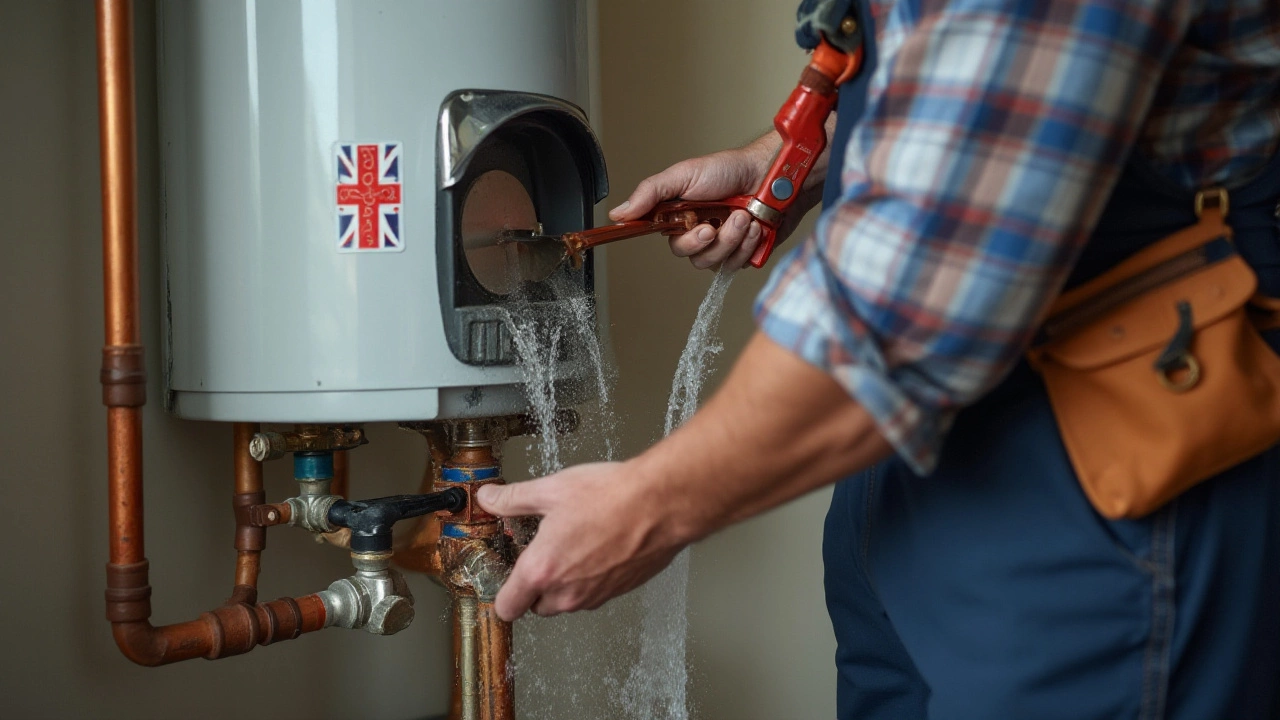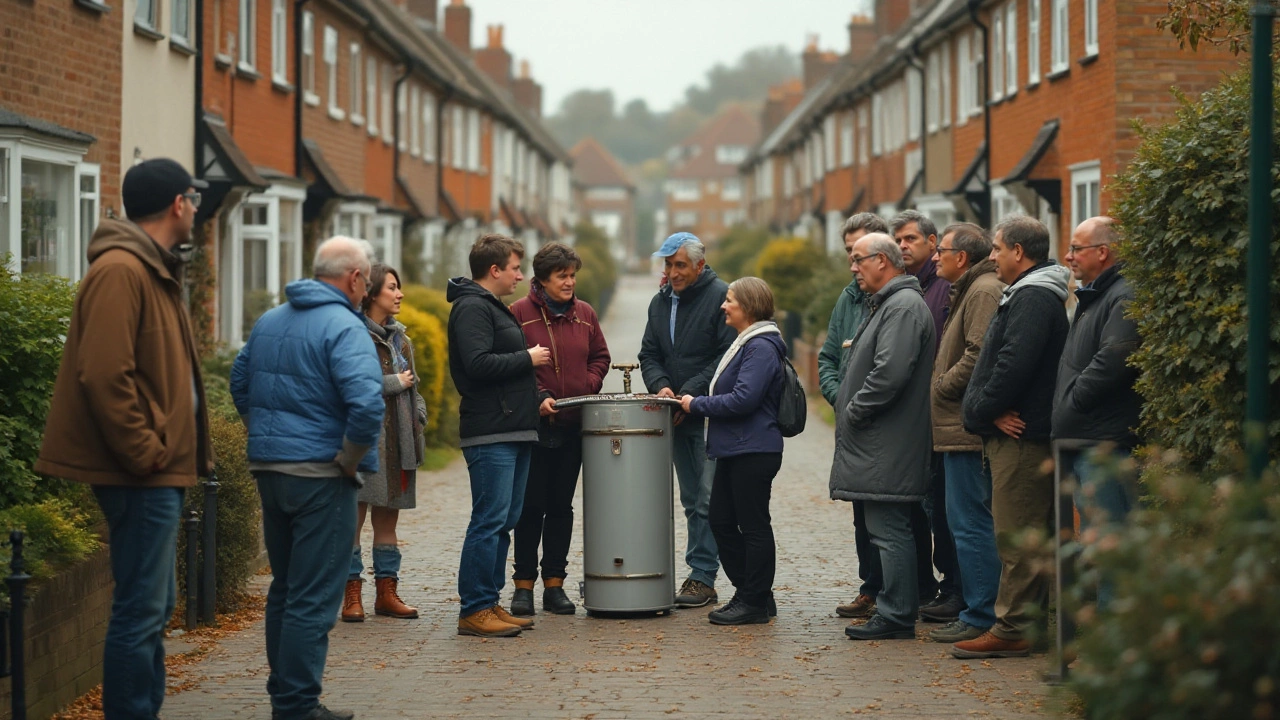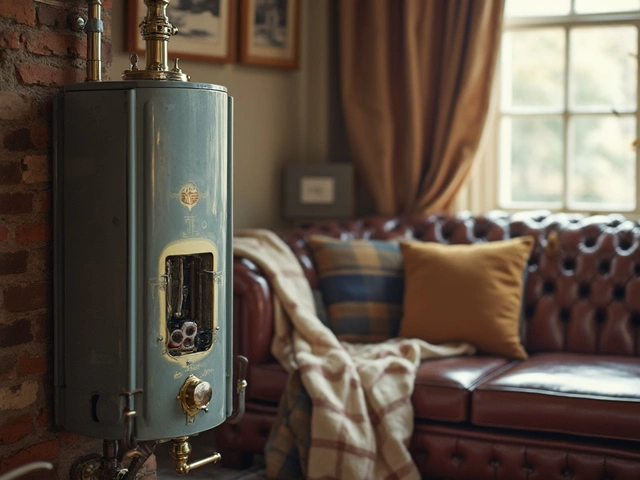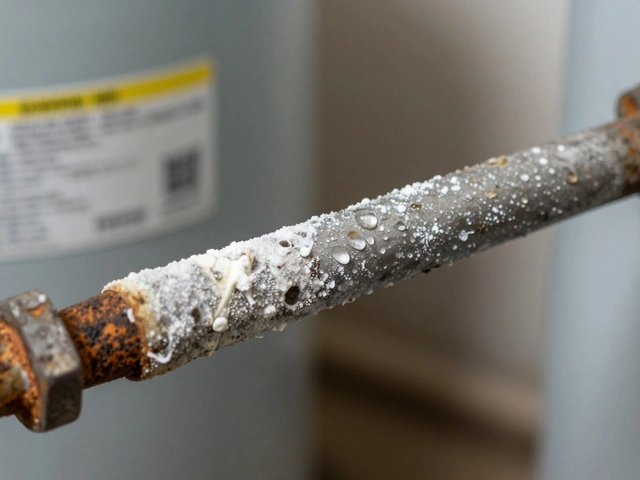Ever pondered the fate of a ten-year-old water heater? It might be lingering in your basement, faithfully providing hot water yet perhaps sheltering a secret build-up of sediments. Much like maintaining a car, routine upkeep is key to ensuring your water heater runs smoothly.
As mineral deposits gather over the years, especially if you have hard water, they can cause your water heater to work harder than necessary. This added stress can lead to inefficiency, increased energy bills, or worse, a surprise cold shower. So, is it time to give your trusty heater a fresh start?
Join us as we dive into the importance of flushing your aging water heater, signs that scream for attention, and the benefits that come with a bit of tender care. Whether you choose to roll up your sleeves or call a pro, understanding this process might just save you a couple of headaches and dollars down the line.
- Understanding Sediment Build-Up
- Signs Your Water Heater Needs Flushing
- The Benefits of Regular Flushing
- DIY vs Professional Services
- When Replacement is a Better Option
Understanding Sediment Build-Up
In any home, the water heater stands as one of those silent guardians that faithfully perform even when you take them for granted. Yet, behind the scenes lurks an ever-present adversary—sediment build-up. This common issue, often overlooked, can significantly hamper your heater's efficiency if not properly managed. When water is heated, naturally occurring minerals like calcium and magnesium precipitate out, settling as sediment. Over time, this layer of sediment grows thicker, sitting at the bottom of the tank and acting like an insulator between the burner and the water. This means your heater has to work overtime to get the water to the right temperature, risking premature wear and higher energy bills.
Much like how cholesterol can clog arteries, sediment can constrict the paths within your water heater. As the layer thickens, not only does it reduce the tank's heating efficiency, but it can also lead to popping noises, caused by water trapped beneath the sediment layer. Otherwise known as "boiling send-off," these noises are harmless but serve as a warning that your water heater maintenance regimen needs a refresh. In energy-conscious circles, it's been noted that a water heater's efficiency can drop by as much as 30% when burdened with significant sediment.
If your heater is more than three to five years old and you hear rumbling or popping sounds when it heats, your tank probably contains mineral deposits. This advice comes directly from the U.S. Department of Energy.For those with hard water—water high in dissolved minerals—the risk of sediment build-up increases exponentially. While water softeners can help reduce this, they're not a definitive solution. It's important to regularly check and flush your water heater, especially if it's situated in a hard water area, which according to the US Geological Survey, accounts for more than 85% of the United States.
Some homes may use whole-house filtering systems to minimize this build-up, while others might stick to simple annual flushing procedures. The problem also impacts certain models differently. Some water heaters come equipped with
Signs Your Water Heater Needs Flushing
The signs that your aging water heater requires flushing can be as subtle as the whispering gurgles you hear in the dead of night or as obvious as a lukewarm morning shower. One of the first indicators is a noticeable drop in your hot water temperature. As sediment builds, it forms an insulating layer at the bottom of the tank, making it harder for the heating element to do its job. This leads to less efficient heating and, ultimately, lukewarm water. If you've found yourself with just enough time for a spritz under the hot water before shivering hits, it might be time to consider flushing out that trusty heater.
Another telling sign is cloudy water with an unpleasant odor. When mineral deposits mix with the water, they can cause discoloration and affect the taste and smell. Nobody wants a water that reminds you of a rusty pipe! These sediments can even lead to clogs, thereby reducing the flow of water. Imagine trying to enjoy a hot, comforting bath only to be greeted by a trickle instead of a torrent. It's more annoying than you might initially realize.
Listen closely next time you run your water heater; strange noises like rumbling or popping are strong indicators of sediment build-up. These sounds occur when steam bubbles escape from beneath the layers of sediments, almost like a miniature earthquake beneath your very feet. Ignoring these audible warnings can lead to overheating and potentially damaging your heater or worse, causing leaks.
Keep an eye on your energy bills, too. An older heater working inefficiently due to sediment accumulation will have to work extra hard. This increased effort can result in noticeable spikes in your monthly energy costs. If you notice the numbers climbing higher than usual, it might be more than just your thermostat settings getting out of hand.
"Regular maintenance can increase the efficiency and lifespan of your water heater," notes Joe Mulholland, a certified plumbing technician. "It's cheaper to maintain than to replace."
While many people delay maintenance due to inconvenience, the costs of ignoring these signs can be far greater. Water heaters are crucial home appliances, and their care should not be neglected. It's worth contemplating the minor hassles of maintenance against the major inconveniences of a full-blown breakdown.
Keep these symptoms in focus and don't hesitate to take action. Ensuring your water heater maintenance is up-to-date not only enhances performance but also provides peace of mind. Like a well-oiled machine, a regularly flushed water heater will serve devotedly over the years, heating your home with efficiency and reliability.

The Benefits of Regular Flushing
Regularly flushing your water heater is akin to giving it a refreshing shower, readying it to tackle the task of warming water once again. As time meanders on, your water heater becomes a haven for sediment accumulation courtesy of the minerals dancing through your home's water supply. Left unchecked, these residues commandeer your heater's interior, forcing it to expend more energy for less output. This inefficiency directly contributes to higher utility bills, making your water heater a sneaky energy guzzler. By engaging in routine flushing, homeowners can restore the appliance's efficiency, ensuring hot water flows with minimal energy consumption. So, think of regular flushing as a step in your water heater's self-care ritual, keeping it lean and efficient.
Now, let us chisel down to what happens inside your water heater over the years. The clever science of heating water can attract unwanted guests—mineral deposits that establish residency at the bottom of the tank. These deposits form a barrier between the water and the heat source, forcing the heater to exert more effort to maintain the desired temperature. This persistent struggle can lead to heater burnout, leaving you in a chilly predicament at the most inconvenient times. Flushing water heater systems dislodges these settlers, clearing the path to better efficiency and prolonging the life of your appliance. It's a gentle nudge towards resilience, helping your water heater wage its battle against time a little longer.
And then there's space. Just like any good real estate, the space within your water heater is finite. As sediments pile up, they consume the very space designed for hot water storage. This translates to less hot water on tap, particularly noticeable during peak usage times, such as showering or doing the laundry. By flushing the tank, you're reclaiming that valuable space, restoring its full hot water capacity. Imagine the luxury of long showers aplenty, devoid of sudden temperature drops. Plus, with optimal space utilization, your water heater maintenance routine will suddenly feel like a lifesaver, contributing to a robust, smoothly functioning home appliance.
Catch this quote from industry expert, Jane Uddin, a renowned plumbing specialist:
"Regular flushing isn't just maintenance; it's a ticket to keeping your energy bills in check and your home comfort steady," Jane Uddin emphasizes. "It's one of the simplest ways to ensure your water heater is running at peak performance consistently."Her insights reflect the tangibility of routine flushing benefits—a whisper of wisdom from someone in the know.
Finally, we arrive at the issue of noise. Often underestimated, sediment build-up contributes to the cacophony of sounds emanating from your water heater. Unfamiliar rumbles, hisses, or pops are often signs that your water heater is voicing its woes. These sounds, often mistaken for ghosts in the pipes, are easily mitigated through regular flushing. By keeping the system clean, you transform your water heater from a noisy neighbor to a silent partner, resulting in a much quieter home environment. In choosing to flush regularly, you're honoring your water heater's silence, winning peace of mind and serenity.
DIY vs Professional Services
When it comes to flushing your water heater, the decision between rolling up your sleeves for a bit of DIY or calling in the cavalry of professional services can be quite the conundrum. Each path has its own set of considerations, and knowing them might just tip the scale in favor of one.
Let's explore the DIY option first. Many homeowners take pride in the personal touch they give to home maintenance tasks. Flushing a water heater on your own can be a rewarding project, especially if you possess the right amount of patience and a decent toolkit. The process involves shutting off the power, closing the water supply, and connecting a hose to the drain valve to flush out those pesky sediments. Sounds simple enough, right? However, the reality can be a bit more challenging. A poorly executed flush might lead to leaking valves or inadequate sediment removal, potentially causing more harm than good. Not to mention, without experience, there's a chance of encountering issues that might escalate into bigger problems. But with the right guidance and attention to water heater maintenance, you could save with a DIY job.
On the other hand, enlisting professional services might hit the wallet a bit harder, but it offers peace of mind unmatched by a DIY endeavor. Professionals bring expertise and specialized tools to the party, ensuring the job is done thoroughly and safely. Their keen eye can detect early signs of wear that might go unnoticed by the untrained eye. While the upfront cost is an investment, it might save you from future headaches and unexpected repair bills. An intriguing piece of insight from Consumer Reports suggests that "professional maintenance services can extend appliance lifespan by up to 40%". This stat could weigh heavily for those considering long-term benefits over immediate costs.
There’s also the time factor to mull over. A skilled technician can complete the task swiftly while you sip your coffee and tackle other life demands. DIY, albeit cost-saving, can be a time-consuming venture, especially for first-timers learning the ropes. Moreover, professional services might offer warranties on their work, giving an additional layer of security should anything go awry post-service. In the end, the choice to go DIY or professional hinges on a balanced consideration of personal skill, budget, time, and the value one places on expertise. Whether you're motivated by the thrill of a DIY project or driven by the desire for professional assurance, keeping your trusty water heater in top shape is the ultimate goal.

When Replacement is a Better Option
After years of service, a water heater might be more of a burden than a blessing. Homeowners may find themselves weighing the advantages of continuing with regular maintenance such as flushing your water heater, or deciding it's time to say goodbye. The lifespan of a typical water heater ranges between eight to twelve years, which means that if yours has hit the decade mark, there might be more than just mineral build-up to worry about. Considering the costs of regular maintenance against the benefits of investing in a new unit can be quite revealing.
First, you must consider the frequency and costs of repairs. If you’ve had multiple visits from your friendly plumber lately, those payments can add up quickly. Sometimes, replacing your unit just makes financial sense over pouring money into temporary fixes. Plus, the newer models often boast improved energy efficiency, which translates into significant savings on utility bills. It's not uncommon for modern models to offer 20% better performance, which can be quite substantial over several months or years.
Moreover, safety is another crucial factor. Older water heaters, especially if they haven't been maintained diligently, may develop leaks or corrosion, leading to potential water damage. In worse cases, faulty units have been known to cause home fires or gas leaks. According to a report by the National Fire Protection Association, a significant number of home fires annually are linked to malfunctioning water heaters. This stark reality highlights the risks of relying on an aging unit that could fail unexpectedly.
If you've noticed rust-colored water or heard unusual banging sounds, these could be signs of impending failure. Rust indicates that corrosion has set in, and the inside of the tank is deteriorating. The strange noises are likely from mineral build-up that’s become too large to ignore. Often, these issues cannot be remedied with simple maintenance. In these situations, starting fresh with a new water heater could be the smart move.
There are instances when replacement isn't just a recommendation but a necessity, such as if your water heater develops a leak in the tank itself. Unlike valves or pipes, a leaky tank cannot be fixed, making replacement inevitable. It's also worth noting that older units cannot match the new governmental energy standards, meaning they might be costing you more to run without the option of enhancement to meet efficiency expectations.
"Homeowners often underestimate the long-term costs associated with maintaining an old water heater," says John Richards, a certified plumbing specialist. "Factoring in energy inefficiencies and possible future breakdowns, a timely replacement can save considerable stress and expenses."
Finally, environmentally-conscious homeowners have an additional benefit from replacing an old water heater – the opportunity to reduce their carbon footprint. Modern units, especially those labeled with Energy Star, often consume far less energy and water than their older counterparts. By upgrading, not only are you investing in your home and comfort, but you're also participating in what many see as a critical environmental commitment.




